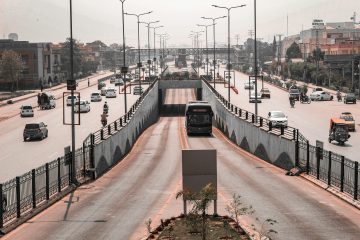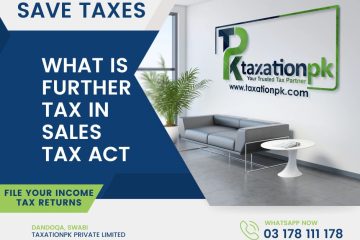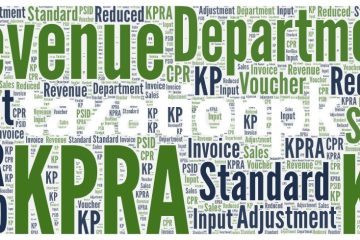The Sindh province employs a multi-faceted tax system to generate revenue for its development and public services. Understanding the various tax rates and regulations is crucial for businesses and individuals operating within the province. This article provides an overview of key taxes in Sindh, including sales tax on services, professional tax, and the Sindh Infrastructure Cess.
Sales Tax on Services
The Sindh Revenue Board (SRB) administers the sales tax on services, with rates varying across different sectors. Recent updates for the fiscal year 2024-25 highlight a nuanced approach, particularly for the beauty and wellness industry. The Sindh Revenue Board (SRB) has outlined the details of this exemption in their working tariff for the 2024-25 tax year.
Beauty Parlors and Clinics: The SRB has introduced conditional exemptions and tiered tax rates for beauty parlors and clinics. Smaller businesses in this sector can benefit from exemptions under specific conditions:
- Hair Salons: Solely offering hair cutting, dressing, dyeing, and shaving services are exempt.
- Small Beauty Businesses: Parlors, clinics, and slimming clinics with an annual turnover below Rs. 2.5 million are exempt on all services.
However, these exemptions are subject to several conditions: location within taxable establishments (hotels, etc.), franchise status, having multiple outlets within Sindh, and exceeding a monthly utility bill of Rs. 25,000.
For beauty businesses not meeting the exemption criteria, the standard sales tax rate is 15%. A reduced rate of 10% is available if no input tax credit is claimed.
Furthermore, a highly reduced rate of 5% is offered with stringent requirements, including electronic submission of election (Form “B”), mandatory installation and use of a POS machine linked to the SRB web portal for electronic invoicing, and no claim for input tax credit.
Other Key Taxable Services: Beyond the beauty industry, several other services are subject to sales tax in Sindh:
- Telecommunication Services: A standard rate of 19.5% applies to voice calls, SMS, internet, and data services.
- Restaurants: Small restaurants with an annual turnover below Rs. 2.5 million may be exempt under specific conditions related to location, ownership, and utility bills.
- Marriage Halls and Lawns: A standard 15% rate applies, with exemptions for halls on smaller plots and subject to conditions regarding location, ownership, and air conditioning.
- Professionals and Consultants: Rates vary depending on the profession, with a standard rate of 15% for medical, legal, and accounting professionals, with some reduced rates and exemptions based on specific criteria like consultation fees or exported services.
- Insurance Services: Most insurance services are taxed at 15%, with some reduced rates and exemptions for specific life insurance policies.
- Advertisements: A standard 15% rate applies to most advertisements, with exemptions for government-funded and public service messages.
- Hospitals and Clinics: A reduced rate of 3% applies to services for rooms and beds exceeding Rs. 25,000 per day.
It is crucial for businesses to stay informed about the specific conditions and eligibility criteria for exemptions and reduced rates to ensure compliance.
Professional Tax
Professional tax in Sindh is levied on individuals and entities engaged in various trades, professions, or businesses, as governed by the Sindh Finance Act, 1964. The applicability and rates vary based on the nature of the profession and turnover.
- Individuals Assessed to Income Tax: A fixed annual tax of Rs. 2,000 is applicable to individuals filing income tax returns.
- Businesses and Commercial Establishments: Tax rates for commercial entities are based on annual turnover, ranging from Rs. 2,000 for turnovers below Rs. 1 million to Rs. 10,000 for turnovers above Rs. 25 million.
- Entities Not Assessed Under Income Tax: These entities are subject to an annual tax of Rs. 2,000.
Procedure to Pay Professional Tax
- Assessment and Registration: Ensure your business is registered with the Sindh Board of Revenue or the respective Excise and Taxation Department.
- Tax Calculation: Determine the applicable category and calculate the tax based on annual turnover or other qualifying criteria.
- Payment: Use the Excise and Taxation Department’s online portal to make payments or visit the local taxation office.
Compliance with professional tax regulations is vital for businesses to maintain legitimacy, access government services, and avoid penalties. Payment can be made through the Excise and Taxation Department’s online portal or at local taxation offices.
Sindh Infrastructure Cess/Tax
The Sindh Infrastructure Cess is levied on the total value of goods entering the province from outside Pakistan via air or sea. This tax, administered by the Excise, Taxation, and Narcotics Control Department, plays a crucial role in funding infrastructure projects within Sindh, particularly those related to transportation and logistics.
The cess rate is calculated on a sliding scale based on the net weight of the goods and includes a distance-based surcharge of 1 paisa per kilometer. Rates range from 1.80% to 1.85% of the total assessed value, increasing with the weight of the consignment. This mandatory levy ensures that growing trade activities are supported by a robust infrastructure network.
Revised Motor Vehicle Tax Rates
Sindh has updated its motor vehicle tax rates under the Sindh Finance Act, 2024, effective July 1, 2024, aiming to standardize taxes and support local manufacturing.
Imported Vehicles (at Registration):
- 3000cc & Above: Rs 450,000
- 2000cc – 2999cc: Rs 275,000
- 1500cc – 1999cc: Rs 100,000
Locally Manufactured/Assembled Vehicles:
- 2000cc & Above: Rs 50,000
- 1500cc – 1999cc: Rs 25,000
This revision significantly favors locally manufactured vehicles, intending to boost the domestic automotive industry. While local manufacturers are expected to benefit, consumers of imported vehicles will face a higher tax burden. This policy shift may influence purchasing decisions and potentially impact the resale value of used imported cars.
The Importance of Compliance
The tax landscape in Sindh is dynamic, with varying rates and conditions across different sectors. Businesses and individuals must remain vigilant about the latest regulations issued by the SRB and the Excise, Taxation, and Narcotics Control Department to ensure compliance and avoid penalties. Understanding the nuances of sales tax on services, professional tax, and the Sindh Infrastructure Cess is essential for smooth operations and contributing to the province’s development. Staying updated through official government channels and consulting with tax advisors are recommended practices for navigating the tax system effectively.





السلام علیکم میں نے ابھی ایک بیوٹی پارلر کیا ہے اس میں انکم ٹیکس کس طریقے سے دے پاؤں گی مجھے اس بارے میں تفصیل سے سمجھا دیں اور اگر فائلر بننا ہوگا تو اس کے لیے کیا کرنا پڑے گا اور اگر اس سے اگے ایک اور کوئی کنڈیشنز ہیں تو وہ بتا دیجیے